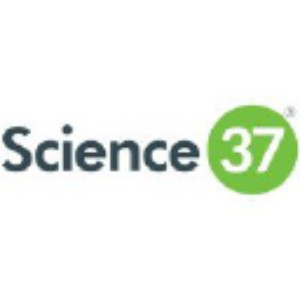Science 37® Reveals a Pivotal Shift in the Clinical Trials Landscape
Science 37 Holdings, Inc. (Nasdaq: SNCE) has revealed a significant industry shift towards agile and hybrid clinical trials. A recent sentiment study of 127 senior executives indicates that nearly 80% plan to conduct agile trials in 2022, compared to 70% for traditional methods. Oncology is expected to see the highest adoption of decentralized clinical trials (DCT), with 46% of respondents anticipating DCT usage. The study identifies key benefits including increased patient retention and faster recruitment, while also highlighting integration and regulatory challenges.
- 80% of clinical research executives plan to conduct agile trials in the next year.
- 46% of respondents expect to run DCT in oncology, showing increased adoption.
- Agile trials promise faster enrollment and better patient retention.
- Challenges include integrating traditional sites with decentralized trials.
- Regulatory concerns may hinder the adoption of DCT methodologies.
Insights
Analyzing...
New data suggest that, for the first time, research sponsors and CROs plan to run more agile or hybrid clinical trials than traditional, site-based studies
LOS ANGELES, Nov. 17, 2021 (GLOBE NEWSWIRE) -- Science 37 Holdings, Inc. (Nasdaq: SNCE) (“Science 37”), pioneer of decentralization and Operating System for today’s more agile clinical trials™, has published new data suggesting that the clinical research industry has reached a pivotal shift in the way that clinical trials are conducted, as Sponsors and CROs report they plan to run more agile (or hybrid) clinical trials in 2022 than traditional, site-based studies.
Findings are the result of a sentiment study among 127 senior clinical research executives in September and October 2021. Nearly eight of 10 respondents said they plan to run an agile clinical trial in the next 12 months. Conversely, just seven of 10 said they are planning to run a traditional, site-based study in the next 12 months.
“The power of increased decentralization is becoming undeniable as more sponsors benefit from faster enrollment, greater retention and increased diversity,” said David Coman, Chief Executive Officer at Science 37. “Leveraging the Science 37 Operating System, our customers are enabling much more agile clinical trial designs that realize these benefits while significantly reducing patient burden and delivering more universal access for patients and providers, anywhere.”
In addition to documenting this fundamental shift, the survey data also paints a vivid picture of the decentralized clinical trial (DCT) landscape for the year ahead, suggesting significant increases in DCT activity across multiple therapeutic areas and study phases. Among the findings:
46% of respondents expect to run an oncology study utilizing DCT in the next year, vs.35% for the previous year—making oncology the most prevalent DCT category.- Oncology, CNS, rare diseases, and immunology should see the biggest uptake in DCT use.
- The report suggests significant increases in DCT activity across Phase II, III, and IV studies.
- We also expect to see big increases in the deployment of most individual DCT components, particularly eConsent, telemedicine, mobile nurses, and remote sites in a hybrid model.
- The top-3 perceived benefits of DCT are better patient experience, better patient retention, and faster recruitment.
- The top-3 perceived challenges of DCT are integrating traditional sites with DCT, lack of in-house capabilities, and regulatory concerns.
You can download a copy of the full report for free at www.science37.com.
About Science 37
Science 37 Holdings, Inc. (Nasdaq: SNCE) mission is to enable universal access to clinical research—making it easier for patients and providers to participate from anywhere and helping to accelerate the development of treatments that impact patient lives. As a pioneer of decentralized clinical trials, the Science 37 Clinical Trial Operating System (OS) supports today’s more agile clinical research designs with its full stack, end-to-end technology platform and specialized networks of patient communities, telemedicine investigators, mobile nurses, remote coordinators and connected devices. Configurable to enable any study type, the Science 37 OS enables up to 15x faster enrollment,
About the Agile Clinical Trial™:
Use of decentralized tools and methodologies is increasing. With these advances, patients will be able to participate from their home, a site, or a combination of home and site; and providers will be able to participate on or off-premise. This symbiotic clinical trial or the “agile clinical trial” requires: The ability to activate any provider and any patient, regardless of premises; a network of patient communities, telemedicine investigators, mobile nurses, and remote coordinators—all with a flexible Operating System to seamlessly navigate between on-site and off-site.
MEDIA INQUIRIES:
Margie Kooman
VP, Marketing & Communications, Science 37
Margie.Kooman@science37.com
Science 37
984.377.3737
INVESTOR RELATIONS:
Caroline Paul
Gilmartin Group
investors@science37.com








